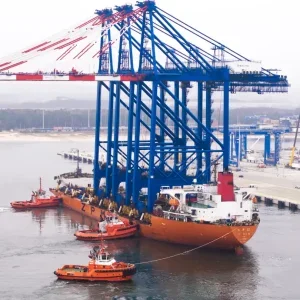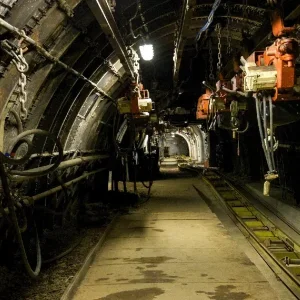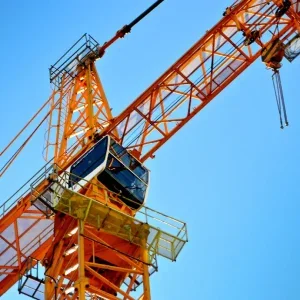
Last month, KCI Konecranes announced it has bought UK crane and hoist manufacturer and service company Morris Material Handling Ltd (see Round Up for more). The company employs 340 people at 16 sites in the UK. Half of them work in service.
The company’s role within the KCI Konecranes group is now being decided.
On one hand, Morris managing director Steve Davis says that Morris will remain independent and will compete with the other two UK Konecranes businesses, service company Lloyds Konecranes and Scottish special cranes builder Konecranes UK.
On the other hand is the view of Pekka Lundmark, KCI Konecranes executive vice president, who said in a statement when the deal was announced: ‘Morris and Lloyds Konecranes (formerly under the name Lloyds British Ltd), are old sister companies, with decades of joint history. The two companies are therefore uniquely positioned to exploit considerable synergies.’ Morris and Lloyds Konecranes were owned by UK-based engineering conglomerate Davy but were both sold off in the early 1990s when Davy went into liquidation.
KCI Konecranes bought Morris partly to acquire its aftersales organisation, Lundmark told Hoist, particularly Morris’s maintenance technicians. ‘We are confident we will be able to use them in the UK market.’ He says he needs the staff to attract more contracts where it manages and maintains every crane on a customer’s site.
But the role of the organisation’s manufacturing business is less clear.
New cranes
Morris currently builds wire rope hoists, chain hoists, and electric overhead travelling cranes and monorails at its factory in Loughborough. Everyone agrees that manufacture will continue.
Says Morris’s Steve Davis:
‘KCI Konecranes intend to invest in
the Loughborough manufacturing
unit and product will be produced on this site for many years to come. Discussions are currently taking place to agree this investment.’
Says Bill Maxwell, KCI Konecranes country executive: ‘There is definitely the intention to continue to manufacture cranes in the same sort of range as the company produces. It would be madness to do otherwise.’ He mentioned installing new press portals, girder beds and new welding equipment.
But there is also uncertainty about what exactly will be manufactured there. What is clear is that KCI Konecranes will decide what exactly Morris will make.
First, KCI Konecranes is reviewing the current Morris product range. According to Bill Maxwell, the product range will be reorganised. ‘That will inevitably lead to some reduction in the product platform, but not immediately.’
‘If you want me to guess what might go, the wire rope hoist is expensive to produce,’ Maxwell says. ‘If we were to continue to manufacture it, we would ideally get more money for it. The technology in that hoist is really pretty outdated. It is the oldest design of all the standard wire rope hoists. If Morris had had the resources to move it on, it would have done so. It did not.’
‘The chain hoist is quite a nice unit. It’s technically sound, the manufacturing process is a little labour intensive, but not bad. It looks profitable to me.’
According to Lundmark, as of mid-January no final decisions had been made about what will – and will not – be manufactured in Loughborough.
But KCI Konecranes is planning to reorganise production in both Loughborough and Konecranes UK’s East Kilbride, Scotland facility. ‘What we do not know yet is what exactly will be the division of manufacture between Loughborough and East Kilbride and other Konecranes facilities around the world,’ he said.
In other words, the Morris plant will become part of the KCI Konecranes global manufacturing network.
There is no risk that the Morris brand will disappear, Lundmark says. But he does admit that hoists and cranes manufactured by new Konecranes subsidiaries do change. ‘Morris is a valuable brand,’ Lundmark says. ‘In previous acquisitions, brands (such as R&M, Verlinde and SWF) continued under the Konecranes umbrella. All are acting as hoist manufacturers. What we have rationalised is the component platforms in order to gain global volumes. That is obviously something that we are looking for in this acquisition as we take advantage of volumes in selling.’






